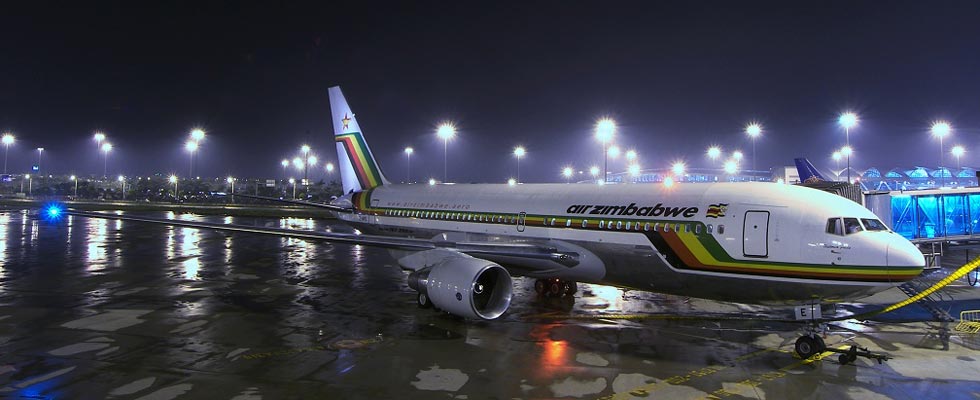
THE government has proposed a temporary reprieve for Air Zimbabwe to shield the debt-ridden national carrier from creditors as it searches for a new strategic partner, it has emerged. Report by Bernard Mpofu
According to new amendments to the Finance Act, Air Zimbabwe creditors will not possess the airline’s assets until 2015.
This, according to the proposed law, would give Air Zimbabwe ample time to settle its debt.
Air Zimbabwe, which had been struggling to service domestic, regional and international debts until its resumption of flights to South Africa, has debts in excess of $150 million.
“In order to protect the assets of the Air Zimbabwe Corporation or its successor company from attachment by its creditors, it is proposed to extend to it the provisions of the State Liabilities Act (Chapter 22:13).”
However, this protection is only temporary to enable the corporation to repay its creditors in an orderly fashion and will expire on January 1 2015, reads the Finance Bill in part.
This comes as government indicated that Air Zimbabwe’s debts were discouraging new investment into the national carrier.
The government, which wholly owns Air Zimbabwe, said it was prepared to relinquish 74% shareholding to a new strategic partner.
- Chamisa under fire over US$120K donation
- Mavhunga puts DeMbare into Chibuku quarterfinals
- Pension funds bet on Cabora Bassa oilfields
- Councils defy govt fire tender directive
Keep Reading
The proposal is contrary to empowerment laws compelling foreign investors to cede controlling stakes in companies operating in Zimbabwe.
The airline has in recent months lost its market share to new and old airlines that have resumed flights to Zimbabwe. Economic Planning and Investment Promotion minister Tapiwa Mashakada last month appealed to KLM Royal Dutch Airlines to partner Air Zimbabwe.
Mashakada made the plea at a function to mark the return of KLM to Zimbabwe after 13 years.
He said the government would support the new strategic partner even though they may exceed foreign investor threshold under the country’s equity laws.











